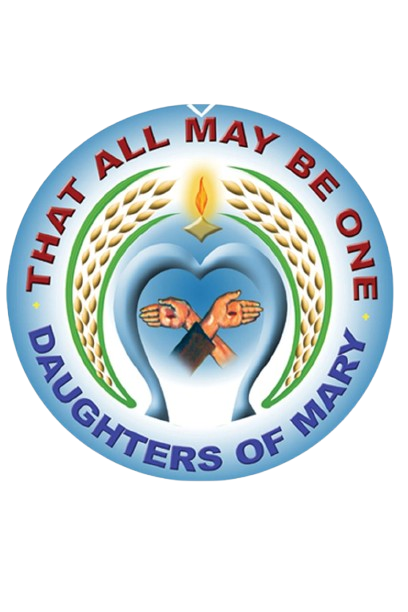

The spiritual DNA that defines our identity, purpose, and way of life
This profound statement is the spiritual DNA of the Congregation of the Daughters of Mary. It is a divine calling that defines their very identity, purpose, and way of life.
The charism is not merely a motto but a practical, lived reality for every sister. It breaks down into a holistic way of being and serving:
Purity of Heart: This refers to an undivided love for God and a single-minded focus on His will. It is a call to integrity, simplicity of intention, and freedom from worldly attachments that distract from their mission.
Poverty of Spirit: This is a voluntary embrace of simplicity and dependence on God. It manifests in a life of material simplicity, shared resources within the community, and a profound solidarity with the poor and marginalized they serve. It is "being poor for the Kingdom of God."
This is the deep, prayerful foundation of all their actions. Sisters are called to a life of deep prayer, meditation, and contemplation of Jesus Christ (the Word Incarnate). This intimate relationship with God is the source of their strength, wisdom, and compassion, fueling all their external works.
Before proclaiming with words, sisters are called to proclaim with their lives. Their very existence—marked by joy, peace, love, compassion, and service—becomes a powerful testimony to the Gospel. They witness to the love of God through their daily interactions, their commitment to community, and their selfless service.
Rooted in contemplation and evidenced by their witness, sisters actively proclaim the Gospel of Jesus Christ. This proclamation happens through:
Every aspect of their charism is oriented towards a single, ultimate goal: the establishment of God's Kingdom. This is a kingdom characterized by love, justice, peace, and reconciliation. All their ministries in education, healthcare, and social work are not ends in themselves but means to build this Kingdom where all people experience the love of God as His children.
This charism is the lens through which every sister views herself and her work.
A sister is not an activist nor a cloistered nun alone. She is both. Her identity is fused: she is a woman whose action is born from prayer and whose prayer is expressed through action. She finds God equally in the chapel and in the face of the sick and the poor.
The charism prevents a separation between the sacred and the secular. For a Daughter of Mary, running a school, managing a hospital, or leading a Self-Help Group is as much a spiritual activity as leading a prayer service because it is all done to "proclaim the Word Incarnate."
Her service is not merely social work or philanthropy. It is an act of witness and proclamation. She serves not just to alleviate suffering but to reveal the love of Christ to each person, upholding their God-given dignity.
The principles of being "pure and poor" guide decisions about resources, lifestyle, and ministries. It calls for transparency, stewardship, and a preferential option for the poor, ensuring their mission remains faithful to its founding spirit.
The shared commitment to this charism creates a powerful bond of unity among the sisters. Despite diverse apostolates (teaching, healing, social work), they are one in their ultimate goal of building the Kingdom of God through their distinctive spirit.
In essence, the charism is a call to incarnate the love of God—to make it visible, tangible, and effective in the world—following the example of Mary, their patroness, who perfectly embodied this call by giving flesh to the Word Incarnate and proclaiming His greatness through her life.